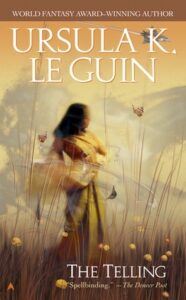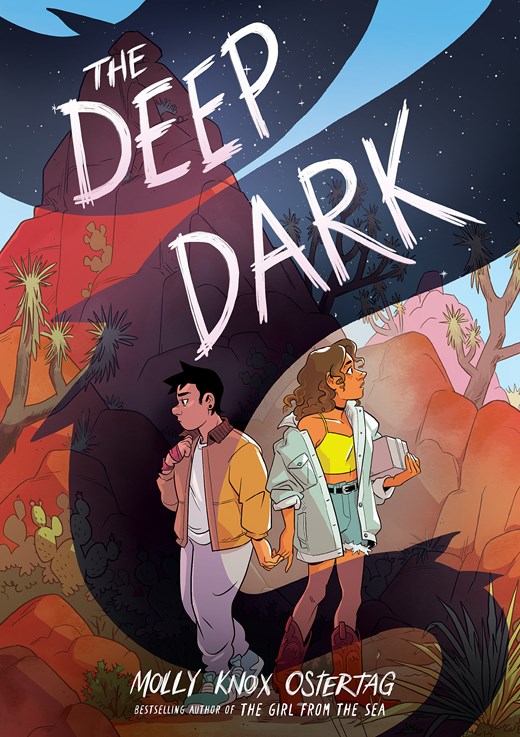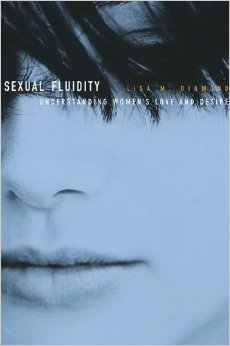Did you know that Ursula K. Le Guin wrote a science fiction novel with a lesbian protagonist? I wouldn’t blame you if not; The Telling is not one of her more popular books. I wasn’t even sure if I wanted to review it—I try to feature sapphic authors with my reviews here, if at all possible. But I have a soft spot in my heart for The Telling, and I do believe that it is highly underrated when it comes to Le Guin’s esteemed corpus of work.
The Telling is part of the fan-dubbed “Hainish Cycle,” a group of loosely connected books and short stories that boasts some of Le Guin’s most widely respected works, including The Left Hand of Darkness and The Dispossessed. They weren’t exactly intended to build a cohesive canon between them, but the general gist is that humans originally spread throughout the galaxy from a planet called Hain. The Hainish colonies (including Earth) all eventually lost contact with and then memory of each other; each book or story then shows a planet at or shortly after the moment when contact is re-established. It’s a useful way to frame the classic sociological sci-fi writing that Le Guin is known for—an Envoy or Observer from the slowly burgeoning coalition of planets can arrive at a completely new human society, which Le Guin can then use to dissect and explore some facet of real life through speculative worldbuilding.
That said, The Telling feels a little different compared to the rest of the Hainish Cycle. And for good reason—released in 2000, The Telling is the first full Hainish novel Le Guin wrote since The Dispossessed in 1974. It reads softer, more intimate than the books that came before, feeling almost more like fantasy than science fiction at times. The Telling follows Sutty Dass, an Observer who arrives on the planet Aka to record its history and culture while Hain makes its diplomatic overtures. During the time dilation of Sutty’s near-light space travel, however, Aka experienced an intense social upheaval that saw a tyrannical capitalist hegemony take power over the planet and attempt to wipe out the entirety of Aka’s long history. It then falls to Sutty, who grew up under religious oppression on Earth, to uncover and understand Aka’s historical and spiritual traditions as they are actively being eradicated by the corporation-state.
The gay content in The Telling is rather subtle and subdued, but it isn’t an afterthought. Sutty’s lesbianism is an important aspect of her character, and when she starts meeting maz, the keepers of the Telling, many of them are gay couples as well. There is a quiet romanticization of gay monogamy throughout The Telling that moved me when I first read it, and although not every aspect of the novel has aged as well, I’m still very endeared of it for that reason. If you enjoy classic science fiction, where the point is less a thrilling story and more the discovery of a brand new world, The Telling is by far my favorite of the bunch.
Content Warnings: homophobia, suicide
Samantha Lavender is a lesbian library assistant on the west coast, making ends meet with a creative writing degree and her wonderful butch partner. She spends most of her free time running Dungeons & Dragons (like she has since the 90’s), and has even published a few adventures for it. You can follow her @RainyRedwoods on both twitter and tumblr.


